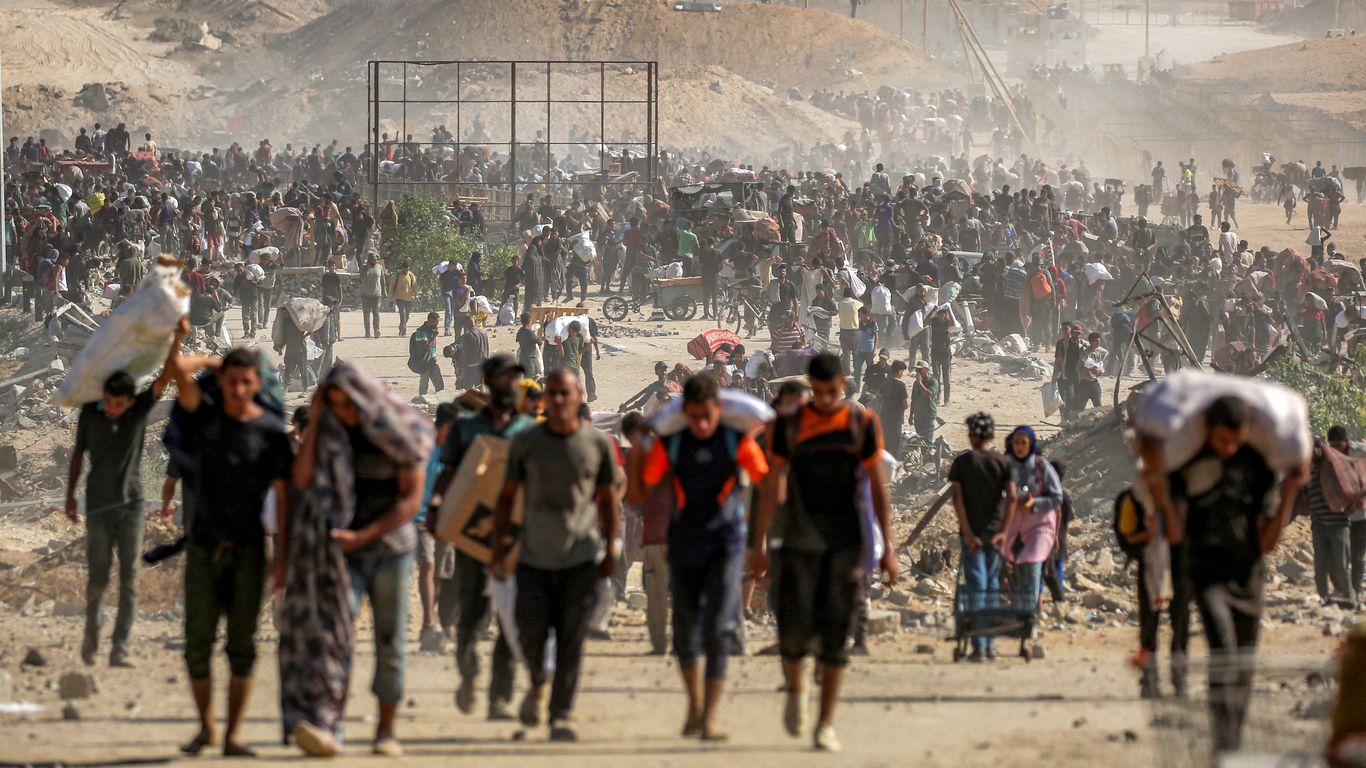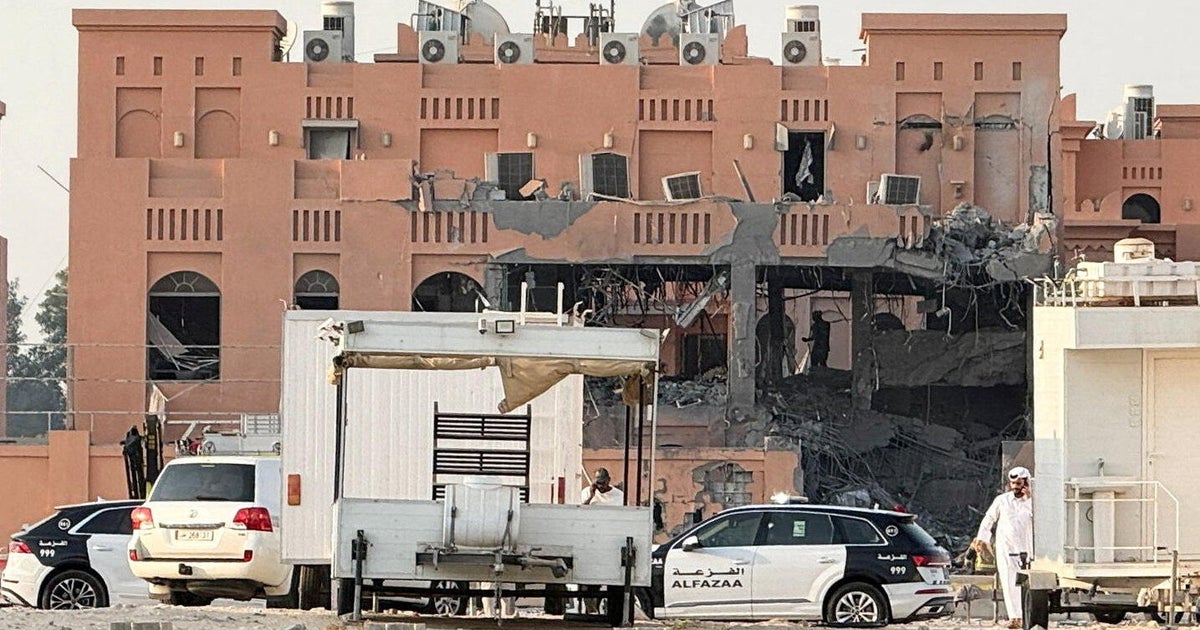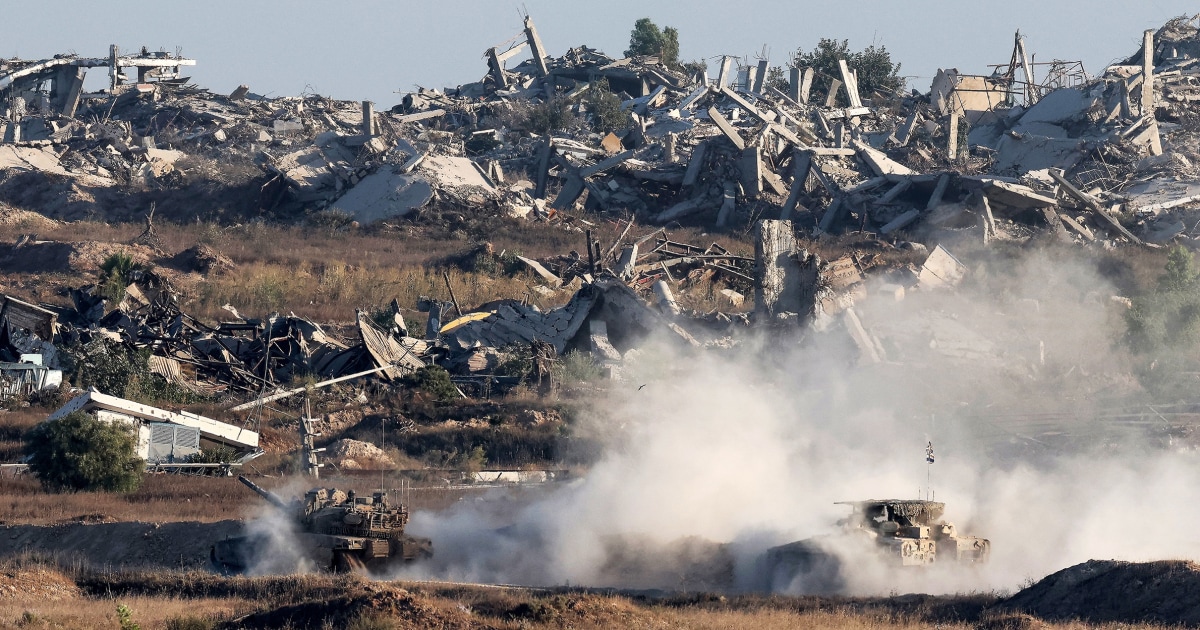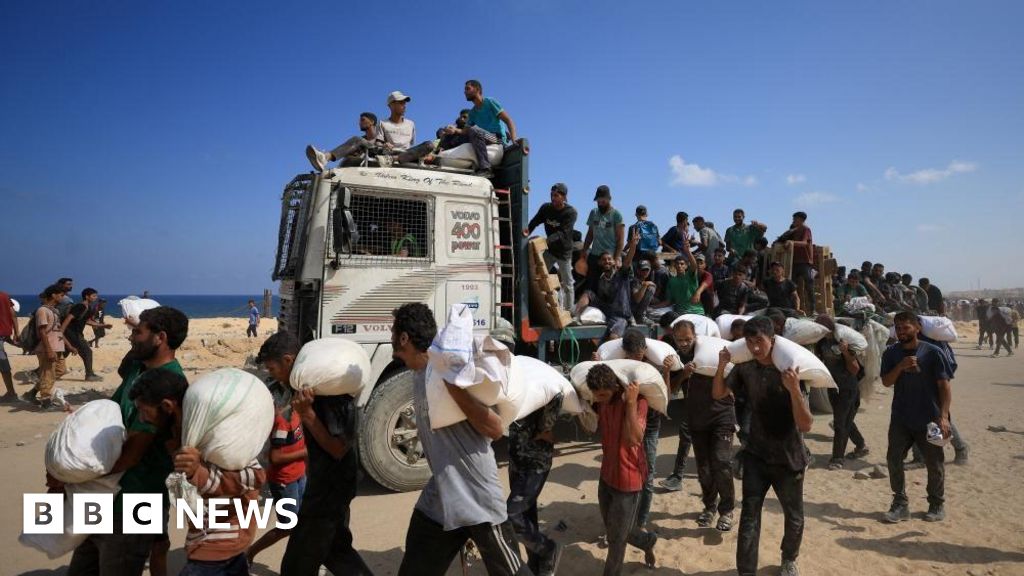Israel Weighs Palestinian Prisoner Releases Amid Negotiations

Israel Weighs Palestinian Prisoner Releases Amid Negotiations
Israel is currently deliberating which Palestinian prisoners to release as part of ongoing negotiations to advance a prisoner exchange deal. This decision comes amid heightened tensions following the 2025 Gaza war ceasefire, where prisoner swaps were key components of the agreement between Israel and Hamas-led groups. The negotiation team being prepared by Israel aims to finalize details that could include releasing hundreds of Palestinians in exchange for Israeli hostages held in Gaza.
Context and Negotiation Challenges
The process is complex, influenced by political pressures and security concerns. Previous rounds of exchanges involved multiple stages and international mediation, notably by the U.S., Egypt, and Qatar. However, disagreements remain over conditions such as territorial withdrawals and timing of releases. Hamas has also escalated threats against hostages, complicating the humanitarian aspect of these talks. Meanwhile, reports of prisoner mistreatment underscore the urgency of reaching a humane resolution.
Implications for Peace and Stability
Successful prisoner exchanges could pave the way for a longer-lasting ceasefire and potential reconstruction efforts in Gaza. However, the balancing act between security interests and humanitarian demands makes the outcome uncertain. Israel’s choice of which prisoners to release will signal its stance on future dialogue and regional stability.
About the Organizations Mentioned
Hamas
**Hamas** is a Sunni Islamist Palestinian nationalist organization that functions both as a political party and a militant group, primarily operating in the Gaza Strip, which it has governed since 2007. Founded in 1987 by Ahmed Yassin amid the First Intifada, Hamas emerged from the Muslim Brotherhood and initially had covert Israeli support as a counterweight to the secular Palestinian Liberation Organization (PLO)[3][1]. It combines political governance with an armed wing, the al-Qassam Brigades, committed to armed resistance against Israel, which it refuses to recognize as a legitimate state[1][3]. Hamas’s political rise culminated in a 2006 electoral victory in the Palestinian Legislative Council, campaigning on anti-corruption and resistance platforms. After violently seizing Gaza from the rival Fatah faction in 2007, Hamas has maintained de facto control there despite international isolation and blockades imposed by Israel and Egypt[3]. Its governance has been marked by repeated conflicts with Israel, including major wars in 2008–09, 2012, 2014, 2021, and the ongoing intense conflict triggered by Hamas’s surprise October 2023 attack killing nearly 1,200 Israelis and taking hostages[1][2][3]. Hamas benefits from regional support, especially from Iran, which supplies funding and weapons, as well as financial and political backing from Turkey and Qatar. These alliances form part of a broader "axis of resistance" against Israel, which includes groups like Hezbollah and Palestinian Islamic Jihad[2]. Hamas also operates fundraising networks globally, sometimes using charities as fronts to support its military activities[4]. The group is designated a terrorist organization by many countries, including the United States, which has increased military aid to Israel following recent escalations[2][6]. Despite modifying its 1988 charter in 2017 to soften some language, Hamas continues to reject Israel’s legitimacy and pursues all forms of resistance[1]. Its enduring political
United States
The **United States** is a federal republic and a global superpower, playing a leading role in economics, military strength, technology, and governance. It is a nation of approximately 348 million people as of 2025, characterized by its diverse population and dynamic economy[8][6]. Founded in 1776 following independence from British rule, the U.S. rapidly evolved into a major world power, especially after World War II, when its technological and economic investments solidified its global dominance[4]. Today, it remains the world’s preeminent military power, with 76% of Americans recognizing this status, while about half view it as the leading economic power globally, though China is seen as a rising competitor[2][3]. The U.S. government operates through a complex system that manages federal finances, taxation, social welfare programs, and trade policies. Recent legislative changes, such as the 2017 Tax Cuts and Jobs Act and the 2025 One Big Beautiful Bill Act, have shaped the tax landscape to influence economic growth, labor markets, and federal revenue[1]. Despite challenges like rising federal deficits projected to reach 6.9% of GDP by 2027, consumer spending remains resilient, and business investment is expected to grow steadily in 2025[5]. In governance, the U.S. is rated "Free" with a score of 84/100 by Freedom House, though concerns about democratic erosion and partisan conflicts persist[6]. Public trust and satisfaction with government services fluctuate, reflecting ongoing debates about policy effectiveness and institutional competence[7]. Technologically, the U.S. maintains a critical edge, underpinning its economic and geopolitical power. Experts warn, however, that technological dominance is not guaranteed indefinitely, emphasizing the need for adaptive policies and international cooperation to sustain leadership in innovation and global affairs[4]. Overall, the United States remains a pivotal force in global business, technology, and politics, balancing historic strengths with contemporary challenges in
Egypt
Egypt is a transcontinental country bridging Africa and Asia, with a mixed developing economy that ranks as the **second-largest in Africa** and 44th worldwide as of 2025[1]. It is a major emerging market and an active member of the African Union, BRICS, and the African Continental Free Trade Area (AfCFTA)[1]. Egypt’s economy combines private enterprise with centralized planning and government regulation, undergoing significant reforms since the 2000s to promote market orientation, fiscal discipline, and foreign investment[1]. Key reforms include fiscal and monetary policy adjustments, privatization, and business-friendly legislation, all supporting Egypt’s macroeconomic growth and addressing high unemployment and poverty rates[1]. Notably, in 2024, Egypt floated its currency, resulting in a 38% depreciation of the Egyptian pound, which, alongside over $50 billion in international financing from partners like the IMF and World Bank, helped stabilize the economy and improve its credit outlook[1][2]. Egypt’s strategic geographic location as a gateway to Africa, Asia, and Europe, coupled with its large domestic market and diverse sectors such as agriculture, manufacturing, and services, presents significant investment potential[2]. Its trade performance is strengthening, with higher export volumes and reduced import pressures in early 2025, supported by government initiatives like export subsidies and trade facilitation reforms[4]. The Central Bank’s adoption of a flexible, market-driven foreign exchange regime has improved currency stability and export competitiveness[4]. Despite challenges from global shocks like the Ukraine conflict and regional instability, Egypt’s economy is resilient and forecasted to grow from 2.4% in 2024 to 4.6% by 2027, driven by private consumption and investment growth[2][4]. The government also supports small and medium-sized enterprises (SMEs) through recent tax breaks and simplified tax collection to boost private sector dynamism[6]. Egypt ranks 86th in the 2025 Global Innovation Inde
Qatar
Qatar is not an organization but a country located in the Middle East, known for its significant contributions to global business, technology, and social development. Here is a comprehensive summary of Qatar's key aspects: ## Overview Qatar, officially the State of Qatar, is a constitutional emirate with a hereditary monarchy. It is ruled by the Āl Thānī family, with the current emir being Sheikh Tamim bin Hamad Al Thani. The country's government structure includes a Council of Ministers and an advisory Shura Council, although the latter's electoral component was abolished in 2024[4]. ## History Qatar's history is marked by its transformation from a small tribal state to a major economic power. After World War II, oil revenues significantly increased, leading to rapid modernization and political stability within the ruling family[4]. In 2003, a new constitution was approved, which initially provided for the election of the Shura Council, but these elections were repeatedly delayed until 2021 and later abolished[4]. ## Key Achievements - **Economic Diversification**: Qatar has successfully diversified its economy beyond oil and gas, with non-oil sectors contributing over 60% of GDP in 2024[8]. Tourism, logistics, and financial services are key drivers of this diversification. - **Global Events**: Qatar hosted the FIFA 2022 World Cup, which was a significant achievement in terms of infrastructure development and international visibility[8]. - **Investment and Development**: The government has allocated substantial funds for major projects, including education and healthcare, with a budget of $5.3 billion for education and $6 billion for health in 2025[2]. ## Current Status Qatar continues to invest in strategic sectors like education, healthcare, and environmental sustainability. The country is hosting the Second World Summit for Social Development in 2025, focusing on inclusive social development[6]. Its GDP per capita is among the highest


















